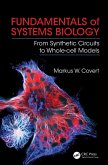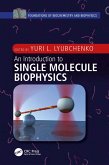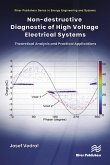For decades biology has focused on decoding cellular processes one gene at a time, but many of the most pressing questions and diseases such as cancer and heart disease are related to the interaction of hundreds, or even thousands, of gene products. How do we begin to understand this complexity? Systems biology addresses this need, standing at the intersection of computational modeling and high-throughput molecular biology. This textbook introduces readers to the field, walking them through studies that are the foundation and frontier of systems biology.
Dieser Download kann aus rechtlichen Gründen nur mit Rechnungsadresse in A, B, BG, CY, CZ, D, DK, EW, E, FIN, F, GR, HR, H, IRL, I, LT, L, LR, M, NL, PL, P, R, S, SLO, SK ausgeliefert werden.









